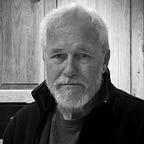LEARNING – Intelligence & Assessment
Part Two – Assessment
Assessment can perhaps be the most harmful part of Education. I can hear the customary refrains about another attack on assessment. “Assessment is an important part of learning”, or, “if it was good enough for us …..!”, are just a few of the customary responses. Neither answer the question.
We need to understand the purpose of assessment and what we are trying to achieve with the process. This is a very large topic that can mean different things to different people. One thing for certain is that the questions need to be asked and the responses must be proven with hard data. Responses must take into account more then the temporary recording of grades, but the long term impacts, do students actually improve following assessment. What if we find the opposite to be true and students decline? Below are a few questions that should be answered satisfactorily before assuming a defensive posture on one’s position on the subject.
1) What is the purpose of assessment? (The specifics & how to use them.)
2) Why is that information relevant and useful?
3) How does this information improve student learning? Exactly what methodologies are being used, how and to what effect?
4) How do we confirm the value of assessment in learning? (before & after)
5) Upon final summative assessment and the semester closes, how is assessment used to improve each and every student?
6) Do prior understandings impact future learnings? What if those prior learnings resulted in a 50% mark? The prior learnings are not completed.
7) If that child does poorly at the next level, would it be due to poor performance in that class, or the results of poor understanding of prior learning’s vital to succeed at the next level?
8) How do we deal with a child lacking half of the required learnings? Who takes responsibility to ensure missed prior learnings are addressed?
9) What are our expectations if the lack of stuff prior learning is not addressed? Why?
10) Is all assessment taken up with each child to ensure learning is improved? If not, why not? Of what significance is assessment if children are not served by the process?
11) Mistakes are supposed to be a part of learning. Education grades those mistakes and registers them as wrong. How do we square our belief that learning is all about making mistakes, yet our policies tell children not to make them?
12) How do we make those mistakes, “teachable moments”, or do we? Do we provide time for improvement of poor outcomes? If not, why not?
13) Do we seek evidence a child has improved their learning after assessment?
14) If memory is a large component of learning, do we know exactly how memory impacts learning. Could mistakes on final assessment be due to their inability to know, or to remember? Does it matter?
15) Is memory an innate quality or something that can be improved upon?
16) If we assessed the same child on the same exam a year later, what might be the outcomes? Would a lower grade signify that the earlier assessment was faulty, or that memory failed the student?
17) If memory fails over time (and it does), of what value was the learning, other than prior learnings needed for the next stage?
18) What remains when memory fades? Does it matter if a child failed on the same exam in a year, a month, or even a week, after final assessment?
19) There is an old axiom that goes; What I hear, I forget. What I see I remember. What I do, I know. I would like to add one more, what I mentor, I master. How much of each are children allowed to complete? Do we ingrain or embed learnings without the four steps, or at least the first three?
KICA (Knowledge – Thinking & Inquiry – Communication. – Application)is a commonly used method of Eva land assessment. Knowledge at the top, thinking and Inquiry, next, followed by Communication and finally Application. At the top of this list, knowledge reins supreme, which is also the area of learning that suffers the most from memory loss. Thinking and Inquiry follow, inferring that content (knowledge) is more important than process? The last two are variations on a theme. Communication and Application indicate the ability to use the knowledge in comprehensible ways. Knowledge is actually at the base of the pyramid.. Thinking and Inquiry plan the build and Communication and Application (skills) build the pyramid. We have placed the base (knowledge) at the top?
I would submit that knowledge serves the other three. Knowledge in and of itself cannot be seen as the pinnacle of achievement, it is the first step. I see Education as a lot of partially built pyramids. Each composes an equal place and value, we should try not to get the order mixed up.
To conclude, I think we need to go back and question some of our beliefs and understandings of the terms we use and our understandings of those terms. Just because something has been around a long time, doesn’t mean it can’t be wrong, or misunderstood. It just means that everything must be reevaluated in the context of new developments in our society and the planet we live on. We owe it to children to provide context and relevance and to help them develop the skills to understand and interpret the world through their eyes.
Bill Howe
WC Howe Institute of Learning
